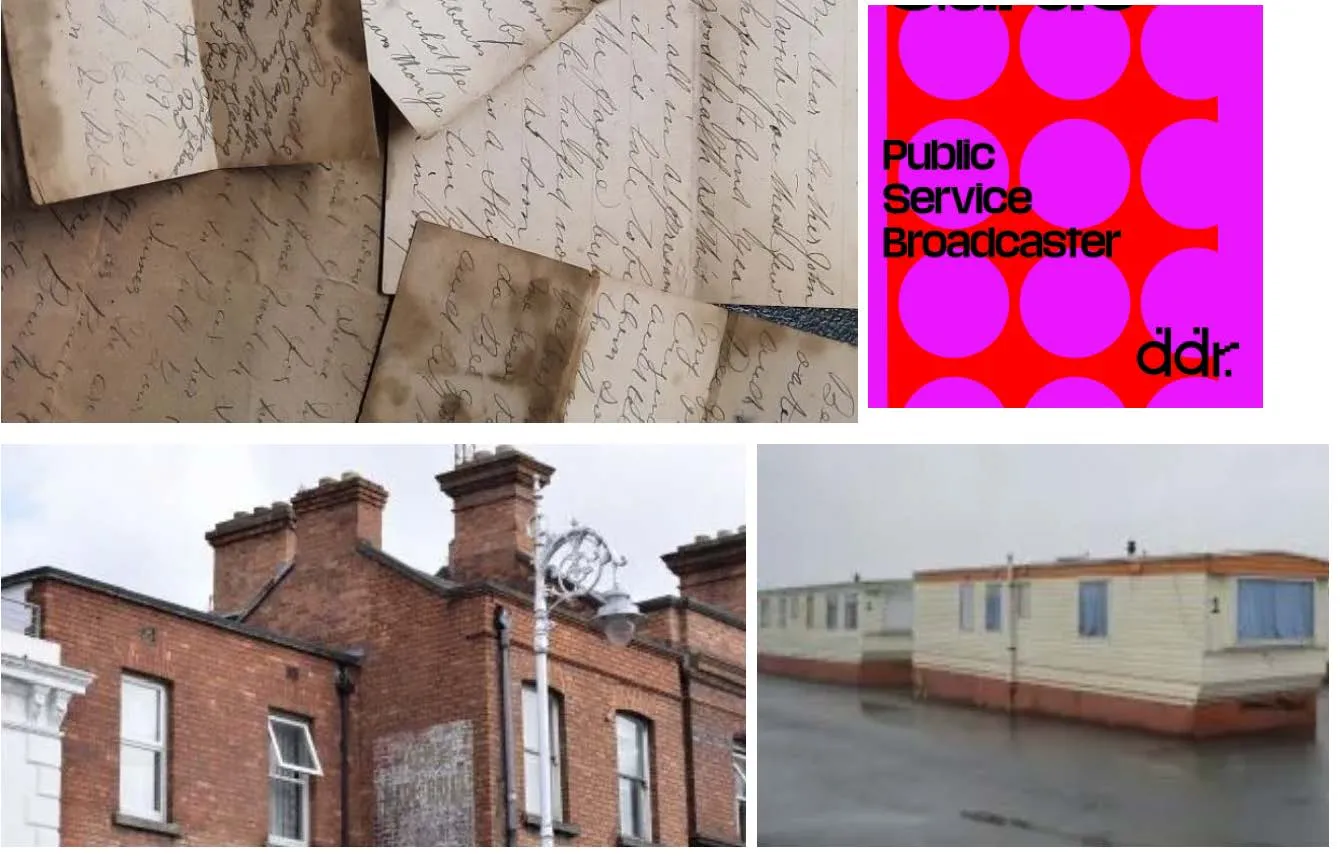By Clare Lanigan
The year 2023 marks five years since the Digital Repository of Ireland (DRI) launched our Community Archive Scheme. This blog post discusses the reasons for the Scheme, previous winners, and significant collections deposited by community archivists since 2018.
The Community Archive Scheme was developed to enable digital archive-holding groups with limited access to funding to join DRI on an associate membership level and preserve their collections. It was developed as a pilot programme by the DRI Membership Taskforce in December 2018 in response to our concerns that smaller organisations were missing opportunities to preserve their valuable and unique collections.
The aim was for DRI to support the digital preservation of material held by smaller institutions who cannot access the conventional DRI membership scheme. Through this pilot, DRI was able to assess the demand for digital preservation and support from smaller groups as well as the support they would need from DRI team members. If successful, the plan was to make the Scheme annual.
Through the Community Archive Scheme, DRI has increased our commitment to working with underfunded organisations to ensure that the paid membership model is not a barrier to accessing digital preservation and archiving, and to facilitate more equitable access to diverse voices.
The first winner of the Scheme was Cork LGBT Archive, which published its first collections in DRI in 2019. Maintained by a single volunteer, the Cork LGBT Archive aims to preserve and share information concerning the rich history of Cork’s lesbian, gay, bisexual and transgender communities. The work was previously held on a local Omeka based system, and was considered to be severely at risk. Over 150 objects comprising text, audio, and video are now preserved in the DRI, and the collection has since been aggregated to Europeana.
In late 2019, the winner for 2020 was announced – the Asylum Archive. The Asylum Archive was founded in 2007 by artist, activist, and scholar Vukašin Nedeljković, a former resident of a Direct Provision Centre, and includes almost 6,000 photographs, academic essays, audio interviews, and publications.
Also in 2020, to further support the sustainable creation of research collections, DRI awarded the Community Archives Scheme membership to a second organisation – the Cork Community Media Hub (formerly Framework Media and Archive Centre) – who aimed to preserve a collection comprising films produced as part of the 2005 European Capital of Culture Programme.
Three community-based archive initiatives were chosen as the winners of the 2021 DRI Community Archive Scheme: The Elephant Collective, Dublin Ghost Signs, and Dublin-based Community Films by Joe Lee. The decision was informed by DRI’s commitment to playing our part during the COVID-19 crisis by offering extra preservation support for at-risk collections.
The Elephant Collective is a voluntary group of birth activists, educators, student midwives, and artists that helped to secure new legislation that would make inquests into all maternal deaths in Ireland both automatic and mandatory.
Dublin Ghost Signs is an online collection of photographs of Dublin’s old and fading signs which have stood the test of time.
Joe Lee is an independent film and video maker. Since the early 2000s, Joe has been making a series of community-based films set in Dublin neighbourhoods that present a unique insight into the recent social history of the city from the 1980s onwards.
For 2022, the winners were Tulsk Historical Society and Bray Arts. Tulsk Historical Society was formed in 2021 to preserve a small collection of 11 historically important letters dating back to the 1890s, which document Irish experiences of emigration to America, as well as a comprehensive collection of documents, books, and photographs that are reflective of Tulsk’s local history, culture, and way of life.
Bray Arts was founded in 1996 as a forum for both arts practitioners and anyone with an interest in the arts. Bray Arts has accumulated a substantial collection of written and photographic records of its activities over the years. The written collection alone comprises over 92 Bray Arts Journals and 38 shorter bulletins as well as photographs of artists, writers, performers, and attendees at Arts events.
The most recent winner of the Community Archive Scheme is Dublin Digital Radio (ddr). ddr is an award-winning, online community radio station representing a wealth of alternative music, art, and politics across Ireland. Their collections will provide future generations with an invaluable insight into Irish sound cultures and community radio during a particular time and place.
As well as the Community Archive Scheme, DRI has augmented its community outreach through our programme of events. A significant example took place in October 2020, co-hosted with National Archives, Ireland (NAI): ‘Archival Activism: Community-Centred Approaches to Archives’. This was a timely event following a worldwide interest in the Black Lives Matter movement. Its aim was to highlight the work of community archivists who build free and open online collections documenting the stories of their communities. The event sought to look at how national memory institutions can share their skills and profession-based knowledge to support community-based archival initiatives and form equitable partnerships to foster more diverse cultural collections and provide a wider range of online educational materials.
As well as organised events, the DRI Monthly Virtual Coffee Morning was launched in January 2021 to provide DRI Members with a forum to contribute to conversations about digital preservation topics, challenges, or projects in a relaxed environment, to network with the community, and to ensure regular contact with DRI staff.
From its initial development by the Membership Taskforce in 2018, the Community Archive Scheme has gone from strength to strength: increasing the visibility of important, underfunded archives, increasing DRI’s community engagement and the diversity of our collections, and, most importantly, enabling these communities to archive their unique digital heritage for long-term preservation.




